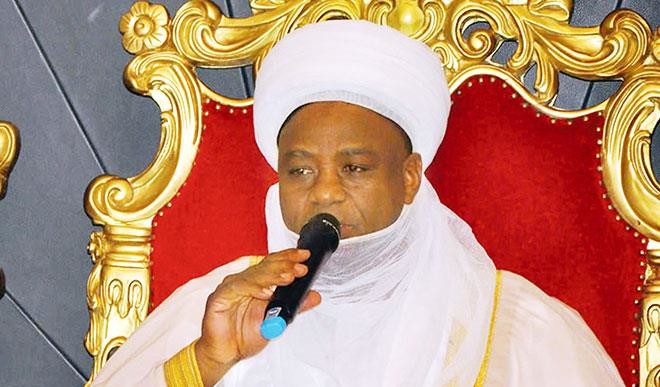NSCIA Denies Allegations of Christian Genocide, Accuses CAN of Spreading False Narratives
The Nigerian Supreme Council for Islamic Affairs (NSCIA) has strongly denied claims of a “genocide against Christians” in Nigeria, describing them as part of a coordinated campaign by local and foreign actors to destabilise the country and create religious division.

The reaction comes after U.S. Senator Ted Cruz introduced a bill seeking to protect what he called “persecuted Christians” in Nigeria. U.S. Congressman Riley Moore also urged the Secretary of State to take diplomatic action against the Nigerian government, accusing it of allowing the systematic persecution of Christians. Similarly, American talk show host Bill Maher claimed Christians in Nigeria were being deliberately targeted by terrorists.
President Bola Tinubu had earlier dismissed such claims, insisting that Nigeria remains a nation founded on unity, faith, and mutual respect. He said no religion is under threat in the country and urged Nigerians to focus on strengthening their shared diversity.
However, the Christian Association of Nigeria (CAN) disagreed with Tinubu’s position, backing the U.S. lawmakers’ claims. In a statement, CAN President Daniel Okoh said Christian persecution in Nigeria is real and that the association has consistently raised the issue with international bodies, including the International Criminal Court (ICC) and global Christian organisations.
But the NSCIA, led by the Sultan of Sokoto, Muhammad Sa’ad Abubakar III, has now hit back, accusing CAN of commercialising religious tension for international sympathy and financial gain.
In a statement signed by Imam Haroun Muhammad Eze, the NSCIA’s Deputy National Legal Adviser, the Council praised government agencies and the National Assembly for countering what it called a “false global narrative.” It, however, criticised the Federal Government for failing to confront the “local originators” of these claims, particularly elements within CAN.
The Council alleged that some Christian leaders have turned religious propaganda into a “business venture” and are actively feeding false information to the international community for personal and political benefit.
“It’s common knowledge that Nigeria’s negative global image stems from the activities of certain citizens—mostly connected to CAN—who profit from self-denigration,” the statement read. “These individuals exploit religious tension for fame and foreign support.”

The NSCIA also referenced a leaked audio recording from the 2023 presidential election in which a candidate described the poll as a “religious war.” The Council said the recording exposed a deliberate attempt to incite religious conflict with external backing.
According to the Council, international reports, including the 2023 U.S. State Department Report on Religious Freedom, show that terrorist attacks in Nigeria target both Muslims and Christians.
“In the first half of 2025 alone, over 2,200 civilians were killed by terrorists and bandits across northern Nigeria—mostly Muslim communities,” the Council said. “These figures prove that the violence is not religiously motivated but criminal and indiscriminate.”
The NSCIA also pointed to the U.S. Commission on International Religious Freedom (USCIRF) 2025 report, which acknowledged that both Muslims and Christians have been victims of violence.
The Council criticised certain CAN leaders, such as Bishop Wilfred Anagbe and Rev. Joseph Hayab, accusing them of spreading “false alarms” abroad to attract sympathy and pressure the government.
However, the NSCIA acknowledged that one CAN official had recently admitted that the violence in Nigeria has no religious pattern, saying:
“If gunmen open fire in a marketplace, the bullets don’t look for a Christian or spare a Muslim.”

The Council also accused CAN of hypocrisy, noting that when all service chiefs were Muslims, CAN claimed bias, but now that most are Christians, the association still blames Islam.
“It’s no secret that some terrorist groups branded as Islamic were actually creations of anti-Islamic forces,” the statement claimed, citing former U.S. Secretary of State Hillary Clinton’s remarks that the U.S. helped create Al-Qaeda.
The NSCIA further alleged that certain Christian groups aim to gain “disproportionate dominance” in politics and governance, pointing out that 62% of presidential appointees are Christians, according to government figures, without any public complaints from Muslim leaders.
The Council concluded by warning against the use of religion for political manipulation and international blackmail. Quoting the Qur’an, it cautioned that those who spend their influence and wealth spreading falsehood “shall surely regret.”




